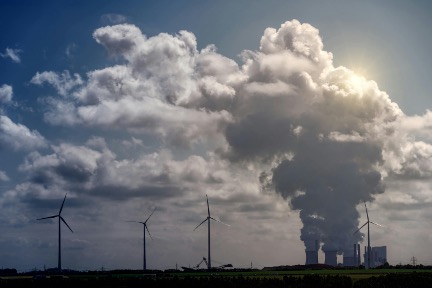Lack of Political Courage Will Lead to Our Own Demise
Canada’s reliance on fossil fuels greatly undermines climate goals, as evidenced by numerous lobbying meetings and the approval of harmful oil projects. To address the climate crisis, the government must adopt bolder targets and prioritize renewable energy solutions.
People experiencing eco-anxiety were thrilled when the Liberal government made environmentalist Steven Guilbeault the Minister of Environment and Climate Change. The co-founder of the Quebec environmental organization Équiterre could turn things around for a government in bed with the oil industry. Expectations were high, to say the least.
Three years later, the supposed great saviour’s record is less than stellar. As someone who knows Mr. Guilbeault personally, I have never doubted his ambition or willingness to do more, but he finds himself facing the sad truth that Canada is an oil state that still values oil and gas production too much, and is far from ready to embark on a real energy transition.

The pressure that the fossil fuels lobby is exerting on the federal government is stronger than ever. The Journal de Québec ’s investigation bureau revealed that, between January 2022 and September 2023, Justin Trudeau’s key departments held over 2,000 meetings with oil, gas and coal lobbyists. That is three times as many meetings as those held with environmental organizations. The statistics do not lie: the fossil fuel lobby clearly influences federal decisions.
Realistically, the Liberal government does not need any help making bad decisions. In 2022, it approved Bay du Nord, an oil extraction megaproject off the coast of Newfoundland. While the government would like this project to be carbon neutral, it could generate over 116 million tonnes of greenhouse gases (GHGs) from producing 200,000 barrels of oil per day, for a total of 300 million barrels by 2058. Furthermore, the drilling project is in the middle of a marine refuge that the government itself created a few years earlier. Under Ottawa’s rules, fishing is not permitted, while oil drilling is. What a contradiction! How are we supposed to protect biodiversity and endangered species while giving free rein to dangerous activities carried out by the oil company responsible for the Gulf of Mexico oil spill? The climate impacts of this project are worrisome, not to mention the possibility of oil spills. And yet, the project was green lit by the government and minister—supposed climate champions. It is probably the most bitter pill that the Minister of the Environment has had to swallow so far, but we need to stop giving him a pass. Even if he has the best of intentions, by giving this project the go-ahead, the Minister has been complicit with the industry and is only making the climate crisis (which is already overwhelming us) worse.
Even the GHG reduction targets that the government has set for itself do not go far enough, and there is every reason to believe that it will not be able to achieve them. In 2021, the government committed to reducing its GHG emissions by 40% to 45% below 2005 levels by 2030. Last September, however, the Net-Zero Advisory Body established by the federal government indicated that the target needed to be more ambitious, proposing a 55% reduction in emissions compared to 2005 levels by 2035. That is the only way to keep pace with Canada’s G7 partners. Unfortunately, based on the federal government’s actions, or rather its inaction, achieving this objective seems like a pipe dream, even though it is the right step to take.

At a time when the climate crisis is arguably the biggest collective global challenge we face, Canada needs to show greater political courage. Otherwise, we will be contributing to our own demised. On World Environment Day last June, United Nations Secretary-General António Guterres said , “We are not only in danger, we are the danger.” We identified the main causes of global warming a long time ago, and we are already starting to suffer the consequences. But we lack the courage to act.
A truly ambitious government would have the courage to stop funding the fossil fuel industry and instead would tax it to fund the fight against climate change. It would have the courage to regulate production.
A truly ambitious government would have the courage to set GHG reduction targets that will yield the desired results and to put all the necessary conditions in place to achieve them. The longer we wait, the more drastic these measures will have to be.
A truly ambitious government would have the courage to punish climate criminals and put a stop to greenwashing and advertising for oil, gas and coal, the same way it has for other products harmful to human health, like tobacco.
A truly ambitious government would have the courage to stake everything on renewable energy to ensure a green future for the next generations.
Yet, at a time when Canada should be capitalizing on having a passionate environmentalist at the helm of the Department of the Environment, it is instead treading water: Canada’s lack of political courage will lead to our own demise.














